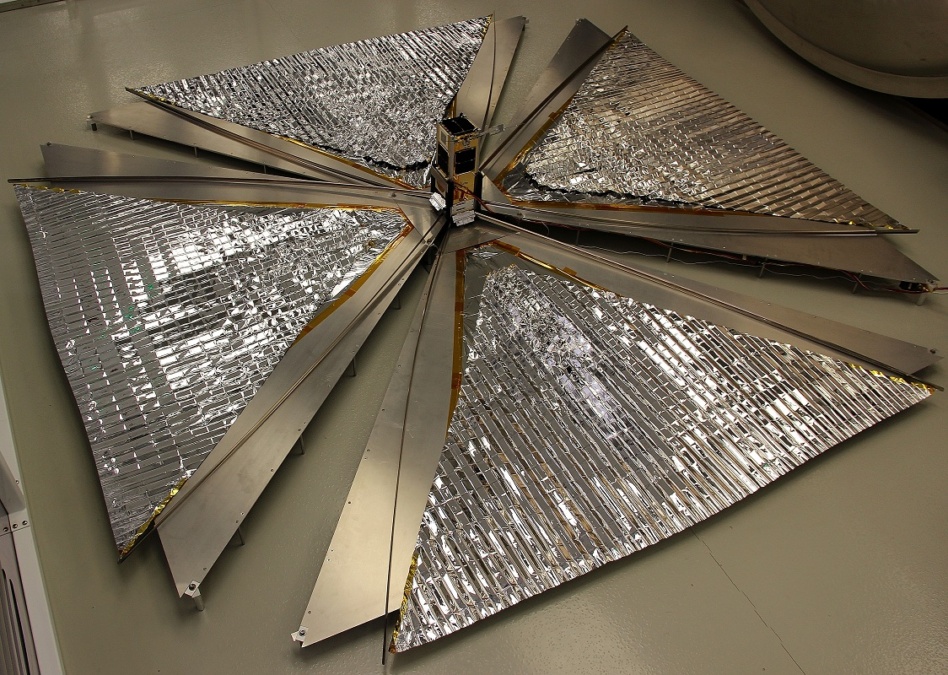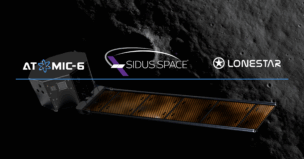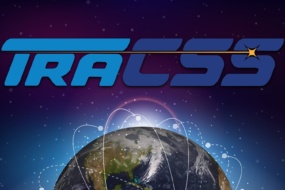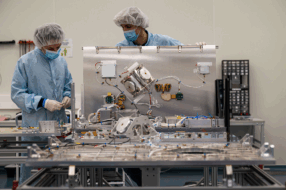Yesterday, the Toronto-based Space Flight Laboratory (SFL) announced that it has achieved a major milestone in debris removal: successfully deorbiting a spacecraft without the use of propulsion. The 24-year-old laboratory used a drag sail to deorbit a nanosatellite within five years from a ~688km altitude, ~178 years more quickly than it would have without the sail.
Mission specs: SFL launched the CanX-7 mission in 2016. The 3.5kg nanosatellite completed a communications demonstration for providing aircraft situational awareness, then in May 2017 deployed the drag sails, beginning the passive deorbiting experiment.
“The mission verified that SFL’s lightweight drag sail technology is a more cost-effective and less complex method for deorbiting smaller satellites than traditional propulsion techniques,” mission manager Brad Cotten said in a press release.
Passive deorbiting: FCC regulations stipulate that satellites in LEO need to deorbit within 25 years after they finish service. Satellites below ~500km will re-enter within that time frame naturally due to atmospheric drag, but satellites in higher orbits, depending on their altitude, size, and shape, will take longer. Drag sails could be a cheaper, more lightweight solution to this problem than onboard propulsion systems.
+ ICYMI: If you’re in search of more information on orbital debris and what’s being done about it, look no further. Check out Part 1 and Part 2 of our in-depth series on space junk.




